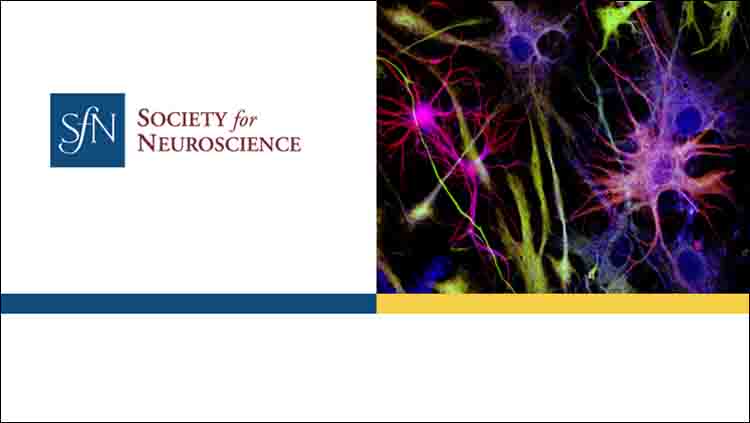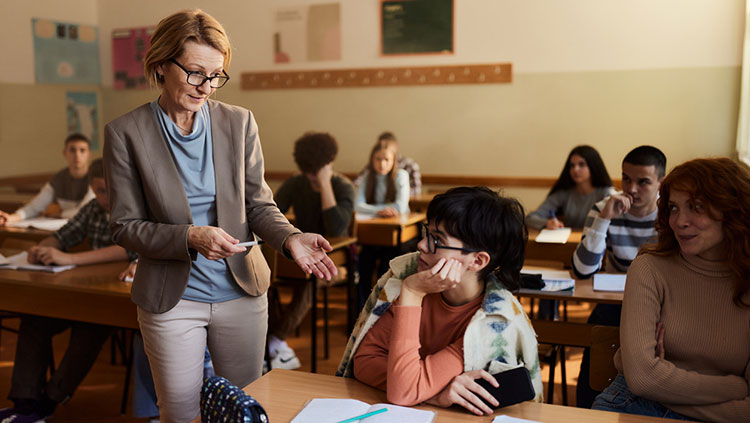SfN Council Reviews Progress in 2024, Renews Late-Breaking Abstracts for Neuroscience 2025
SfN Council met for its typical three half-days during Neuroscience 2024 in Chicago and used those meetings to tackle a robust agenda, including reviewing SfN’s finances, meeting with committee chairs, and reviewing proposed changes to SfN’s governing documents. Key discussions, themes, and outcomes from these sessions are highlighted below.
Neuroscience 2024
The total attendance, both in-person and virtual, at Neuroscience 2024 was 22,359, about 3,500 attendees lower than Neuroscience 2023 attendance. To maximize content availability, registration for the on-demand virtual component was open through the entirety of the virtual component availability, closing November 10, a month after the conclusion of Neuroscience 2024. Of the attendees, trainees comprised the largest category at Neuroscience 2024, continuing a trend that began in 2019. Non-U.S. attendees made up 26% of the total number of attendees, which is similar to Neuroscience 2023. Of the 634 virtual-only attendees, 47% were based outside of the U.S. SfN remains committed to maximizing global representation in all events by prioritizing accessibility of events in person and virtually.
A total of 458 companies exhibited in 848 booths at Neuroscience 2024 and offered a wide range of perspectives on the latest products, services, and technologies on the exhibit floor. Twenty-two companies also held a presentation or product demonstration in the Product Theater, and there were 98 booths at the Graduate School Fair.
In July 2024, SfN opened a call for late-breaking abstracts for the first time. This allowed individuals to submit newer data and offered more opportunities for those unable to submit an abstract during the initial abstract submission period that closed in May. SfN received 868 late-breaking abstracts, with the late-breaking posters grouped by theme, and one to two themes presented in each half-day session. Overall, the late-breaking abstracts were well received. Council approved the continuation of the late-breaking abstracts program for Neuroscience 2025 with a limit of 1,000 submissions on a first-come, first-serve basis, and a 50% upcharge on the abstract submission fee for late-breaking abstracts when compared to the fee for abstracts submitted during the traditional window.
Finance
SfN continues to demonstrate financial health and responsibility and has been successful in supporting its mission in the face of challenges in the funding environment for scientific research. At their fall meeting, Council reviewed the results of fiscal year 2024 and the progress to date of fiscal year 2025. Council continues to prioritize identifying diverse revenue streams as well as maintaining and growing current revenue resources.
Governance
Over the last year, the SfN Council has reviewed how the Society could evolve its membership program to better meet the changing needs of the field. At its summer meeting, Council considered the recommendations from its previously appointed Working Group on Individual Membership and conducted a series of votes to modify parts of SfN’s membership structure. Some of the approved changes required an amendment to Article 5 of SfN’s Articles of Incorporation and revisions to the SfN Bylaws and the Resolutions to the Bylaws. Changes to the Articles of Incorporation and the Bylaws must be voted on and approved by the organization’s eligible voting members. Council approved the proposed changes and the SfN president presented them to the membership at the Members’ Business Meeting on October 7. The vote took place online in December 2024, and the proposed revisions were overwhelmingly approved by eligible voters with more than 90% of the votes in support of these changes. Read the Winter 2025 Neuroscience Quarterly article for more information regarding the vote.
Membership
SfN is committed to seeking out new audiences to engage with the Society’s programs and membership. In its fall meeting, Council reviewed potential target audiences and a framework for determining which audiences to initially focus on. As part of this initiative, Council approved the creation of the Working Group on New Audience Programming, co-chaired by two members of Council. The Working Group will form in early 2025 and will help advise SfN on potential programming opportunities for those audiences to better attract SfN membership.
International Partnerships
Council reviewed Memorandums of Understanding (MoU) with the Canadian Association for Neuroscience and the Mexico City chapter of SfN. SfN has a long history of association with these Canadian and Mexican neuroscience affiliations. Council approved the renewal of an MoU with the Canadian Association for Neuroscience for a three-year period spanning 2025–2027 focusing on supporting areas of mutual interest including neuroscience advocacy opportunities in Canada. Council approved a one-year MoU with the Mexico City chapter focused on advancing advocacy and public education via agreed upon initiatives.
Deputy EiC for eNeuro
Mihaela Iordanova was named as the incoming deputy editor-in-chief of eNeuro, effective January 1, 2025. Iordanova is an associate professor at Concordia University in Montreal, Canada, and has served as the co-director of the Centre for Studies in Behavioral Neurobiology since 2021. She has served in editorial roles at eLife, Neurobiology of Learning and Memory, Behavioral Neuroscience, and Scientific Reports. Christophe Bernard, current editor-in-chief of eNeuro, will continue in his role through 2026. Council met with Iordanova for the first time in Chicago for an annual report from the current publication leadership and to discuss ideas for the future of eNeuro.
Trainee Professional Development Awards
The Trainee Professional Development Awards (TPDA) are a pillar of support for the next generation of scientists. These merit-based awards are presented each year to undergraduate students, graduate students, and postdoctoral fellows who demonstrate excellence in their research. These awards provide early career researchers with the chance to present a scientific abstract, meet peers and senior scientists, and participate in learning opportunities at the annual meeting. TPDA recipients receive a travel stipend to offset the costs of attending the annual meeting as well as complimentary registration. Additionally, recipients have access to exclusive professional development opportunities throughout the year following their award.
In 2024, SfN brought 445 early career scientists to Chicago to take part in the annual meeting, including the largest number of non-North American TPDA awardees in the program’s history. These awardees, supported by a record-breaking fundraising total of $560,100 for TPDAs, represent 54 countries and 275 institutions around the globe. Council is dedicated to stewarding the expansion of the TPDAs as interest grows year over year and has committed to matching all donations made to support the 2025 TPDAs through the Friends of SfN Fund.






















